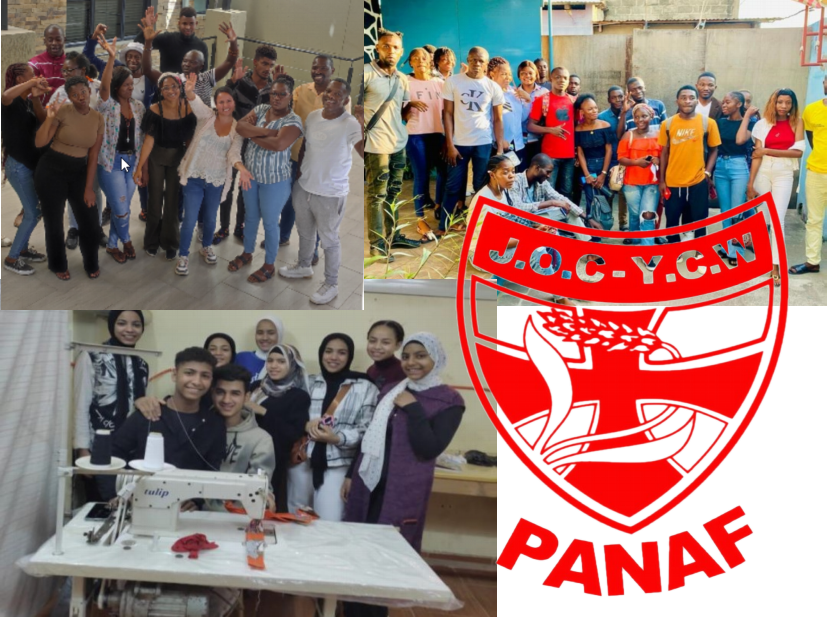
In August 2023, Ana Cecilia Salazar from the IYCW International Secretariat and John Ofori, PANAF coordinator, visited the Namibia YCW national movement. Their aim was to support new processes and promote YCW grassroots groups and the continuity of work with young workers.
The two international leaders first wanted to discover the context in which young workers lead and cope with life in their country, and one of the life testimonies they heard came from a Namibian YCW woman activist:
“As a student I have problems I go through in my day-to-day life. When it comes to my online classes, there are times when I do not have internet connection to access my e-learning platform and I miss out some important information, or sometimes I miss a test. I have to wake up every day at 9h00 to go to the library as we do not have WiFi at home. The cost of transportation is becoming expensive, but every day I have to spend a certain amount on transportation fees. Another problem or situation is paying airtime. Every time I have to make sure I am connected to the internet somehow, so I spent some of my funds on paying data which can sometimes not be enough to cater for the whole month.” - Hildegard
This reality is experienced by thousands of young Namibians, and it should be added that it is difficult for young people to find formal employment. The most common characteristic of young people is informal work and, even worse, unemployment.
A movement with a concrete vision
The Namibian YCW shared with its international visitors its concrete and global vision of the reality of young people and the many problems they face: high levels of poverty; dropping out of school to work and cover the family's basic food needs; lack of basic services, drinking water and electricity (especially in the poorest areas of the capital and in rural communities); poor access to vocational education (travelling from one place to another makes it impossible to cover the costs of renting a room, food and transport) ; high rates of teenage pregnancy; lack of jobs in the country, which prevents young people from achieving the goals they set for themselves; difficult access to the internet (most young people in working-class neighborhoods don't have a computer or smartphone, which severely limits their access to education or work, for example); lack of employment, which pushes most young people into the informal economy (mainly in trade or temporary jobs).
Grassroots groups in initiation
During the visit, the international leaders met several groups of young people eager to share their knowledge and experiences, making the visit even more enlightening and enriching.
Four grassroots groups were identified: three in the capital Windhoek, in various working-class districts of the capital (Katutura), and one in Omaruru, a small town 4 hours from Windhoek.
In all the grassroots groups, young people feel motivated to carry out activities that enable them to address, in one way or another, the situation in which they live.
Three women at the helm of the movement
In the current context facing youth, the Namibian movement succeeded in holding its national meeting with the aim of drafting a national action plan and electing the new national coordination in Windhoek: Salmone' Tsaitsaib, as president; Hildegard Naobes, as secretary; and Emma Elise Ndeupandula, as treasurer. In other words, a new representation of the national movement headed by three women who are committed to guiding the grassroots groups.
The members of the Namibian YCW left the meeting motivated, but aware of the many challenges that lie ahead on the road to strengthening the movement and developing new actions.
They can rely on the support of the international movement to accompany the national plan, establish links with the Church and other organizations, and schedule exchanges with other national movements, so that the young people of the Namibian YCW will be able to strengthen each of their processes and actions in the future.




 English
English  Español
Español  Français
Français